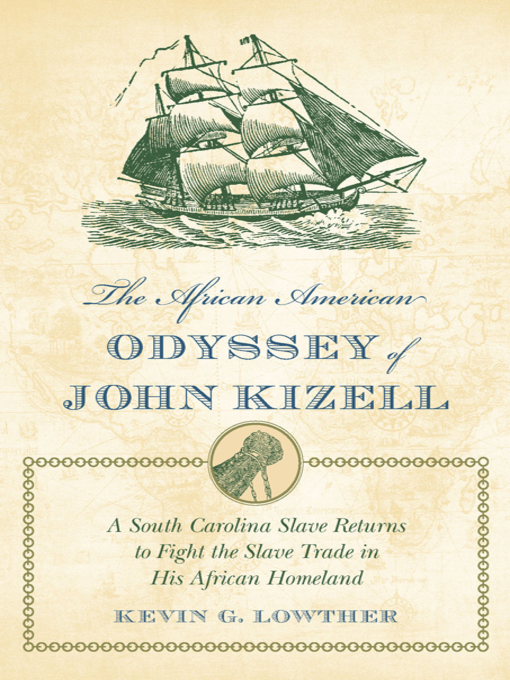A compelling biography of a South Carolina slave who returned to fight the slave trade in his African homeland
The inspirational story of John Kizell celebrates the life of a West African enslaved as a boy and brought to South Carolina on the eve of the American Revolution. Fleeing his owner, Kizell served with the British military in the Revolutionary War, began a family in the Nova Scotian wilderness, then returned to his African homeland to help found a settlement for freed slaves in Sierra Leone. He spent decades battling European and African slave traders along the coast and urging his people to stop selling their own into foreign bondage. This in-depth biography—based in part on Kizell's own writings—illuminates the links between South Carolina and West Africa during the Atlantic slave trade's peak decades.
Seized in an attack on his uncle's village, Kizell was thrown into the brutal world of chattel slavery at age thirteen and transported to Charleston, South Carolina. When Charleston fell to the British in 1780, Kizell joined them and was with the Loyalist force defeated in the pivotal battle of Kings Mountain. At the war's end, he was evacuated with other American Loyalists to Nova Scotia. In 1792 he joined a pilgrimage of nearly twelve hundred former slaves to the new British settlement for free blacks in Sierra Leone.
Among the most prominent Africans in the antislavery movement of his time, Kizell believed that all people of African descent in America would, if given a way, return to Africa as he had. Back in his native land, he bravely confronted the forces that had led to his enslavement. Late in life he played a controversial role—freshly interpreted in this book—in the settlement of American blacks in what became Liberia.
Kizell's remarkable story provides insight to the cultural and spiritual milieu from which West Africans were wrenched before being forced into slavery. Lowther sheds light on African complicity in the slave trade and examines how it may have contributed to Sierra Leone's latter-day struggles as an independent state. A foreword by Joseph Opala, a noted researcher on the "Gullah Connection" between Sierra Leone and coastal South Carolina and Georgia, highlights Kizell's continuing legacy on both sides of the Atlantic.

